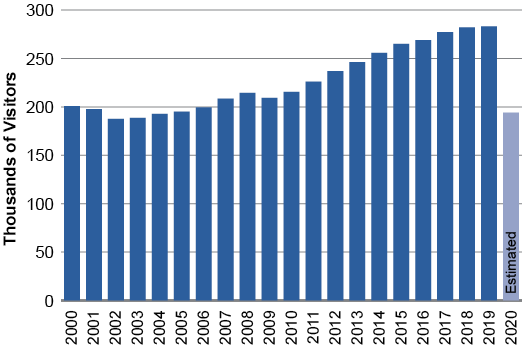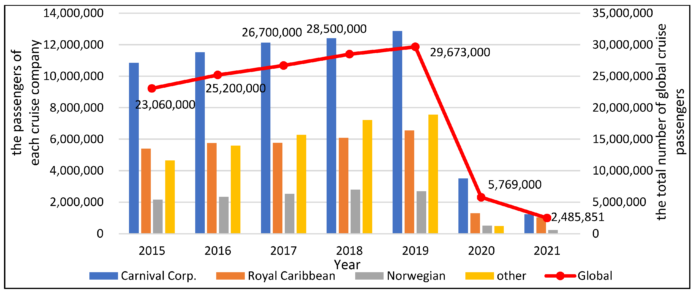The hospitality industry, one of the hardest-hit sectors during the global pandemic, is showing promising signs of recovery. This article explores the current state of the hospitality industry, identifying the key factors driving tourism’s resurgence. We delve into emerging trends that are shaping the future of travel and hospitality, highlighting innovative strategies that businesses are employing to attract tourists. Additionally, we examine the pivotal role of technology in revitalizing the industry, from contactless services to advanced data analytics. Finally, we provide a future outlook, offering predictions on how the hospitality sector will evolve in the coming years. Discover the trends and insights that are fueling the recovery and shaping the future of the tourism industry.
Investigate this topic thoroughly with tirfblog.com
1. Current State of the Hospitality Industry
The hospitality industry has faced unprecedented challenges over the past few years due to the global pandemic. Travel restrictions, lockdowns, and health concerns led to a significant decline in tourism, resulting in reduced occupancy rates, revenue losses, and widespread layoffs. However, as vaccination rates increase and restrictions ease, the industry is beginning to rebound. Domestic travel has surged, driven by pent-up demand and a desire for safe, close-to-home vacations. International travel is also gradually recovering, though it remains below pre-pandemic levels. Hospitality businesses are adapting by implementing enhanced health and safety protocols, offering flexible booking options, and focusing on personalized experiences. Despite ongoing challenges, such as labor shortages and fluctuating travel regulations, there is a cautious optimism in the industry. Businesses are leveraging new opportunities to innovate and attract guests, setting the stage for a gradual but steady recovery. The resilience and adaptability of the hospitality sector are key to its ongoing revival.
2. Key Factors Driving Recovery in Tourism

Several key factors are driving the recovery of the tourism industry. Firstly, widespread vaccination campaigns have increased traveler confidence, reducing the fear of contracting or spreading COVID-19. Secondly, the easing of travel restrictions and reopening of borders have facilitated international travel, allowing for a gradual return to pre-pandemic movement patterns. Economic stimulus measures and government support for the tourism sector have provided financial relief to struggling businesses, enabling them to maintain operations and invest in recovery efforts. Additionally, there has been a significant shift towards domestic travel, with many travelers exploring local destinations and supporting local economies. The rise of remote work has also contributed, as people take advantage of flexible work arrangements to travel and work from different locations. Furthermore, innovative marketing strategies and promotions have played a crucial role in attracting tourists, offering enticing deals and emphasizing safety measures. These factors combined are fostering a positive environment for the recovery and growth of the tourism industry.
3. Emerging Trends in Hospitality and Tourism

The hospitality and tourism industries are witnessing several emerging trends as they navigate the path to recovery. One prominent trend is the growing preference for sustainable and eco-friendly travel. Travelers are increasingly seeking destinations and accommodations that prioritize environmental responsibility, from reducing carbon footprints to supporting local communities. Another trend is the rise of experiential travel, where tourists are looking for unique, immersive experiences rather than just traditional sightseeing. This includes activities like cultural exchanges, adventure travel, and wellness retreats.
Health and safety remain top priorities, with many establishments enhancing their hygiene protocols and offering contactless services to ensure guest confidence. The adoption of technology has accelerated, with innovations such as mobile check-ins, virtual tours, and AI-driven customer service becoming more commonplace. Personalization is also key, as businesses leverage data analytics to tailor offerings to individual preferences, enhancing the guest experience.
Remote work and the digital nomad lifestyle have influenced travel patterns, leading to increased demand for long-term stays and accommodations equipped with work-friendly amenities. Additionally, flexible booking policies and travel insurance options have become essential, providing travelers with the assurance they need to make plans amidst uncertainties. These trends reflect a shift towards more mindful, adaptable, and personalized travel experiences in the post-pandemic era.
4. Innovative Strategies for Attracting Tourists

To attract tourists in the post-pandemic landscape, the hospitality industry is employing several innovative strategies. One key approach is enhancing health and safety measures, such as rigorous cleaning protocols, contactless check-in and check-out processes, and the use of technology to minimize physical interactions. These measures help build traveler confidence and ensure a safe environment for guests.
Another strategy is leveraging digital marketing and social media to reach potential travelers. Personalized marketing campaigns, influencer partnerships, and engaging content are being used to highlight unique experiences and destinations, appealing to travelers’ desires for adventure and exploration. Additionally, offering flexible booking policies and comprehensive travel insurance options can provide the assurance travelers need to make plans confidently.
Hospitality businesses are also focusing on creating unique, memorable experiences that cater to specific interests, such as culinary tours, wellness retreats, and eco-friendly adventures. Collaborations with local businesses and communities help to provide authentic experiences that resonate with travelers looking for more than just a traditional vacation.
Investing in technology, such as virtual reality tours and AI-driven customer service, enhances the guest experience and streamlines operations. By embracing these innovative strategies, the hospitality industry is well-positioned to attract and retain tourists, driving recovery and growth in the sector.
5. Role of Technology in Hospitality Industry Revival
Technology plays a pivotal role in the revival of the hospitality industry, offering solutions that enhance safety, efficiency, and guest satisfaction. One significant technological advancement is the implementation of contactless services. Mobile check-ins and digital room keys minimize physical contact, promoting a safer environment for both guests and staff. Similarly, contactless payment options and automated service requests streamline transactions and operations, reducing wait times and enhancing convenience.
Artificial intelligence (AI) and data analytics are also transforming the industry. AI-driven chatbots and virtual assistants provide instant customer service, addressing queries and assisting with bookings around the clock. Data analytics enable businesses to understand guest preferences and behaviors, allowing for personalized marketing and tailored experiences that increase guest satisfaction and loyalty.
Virtual reality (VR) and augmented reality (AR) technologies are being utilized to offer virtual tours of properties, enabling potential guests to explore accommodations before making a booking. This not only helps in decision-making but also builds excitement and confidence in travelers.
Additionally, technology is aiding in health and safety management. Advanced cleaning technologies, such as electrostatic sprayers and UV-C light sanitization, ensure higher standards of hygiene. Real-time tracking and monitoring systems help manage crowd control and maintain social distancing.
By integrating these technological innovations, the hospitality industry is better equipped to meet modern travelers’ expectations, ensuring a smooth, safe, and enjoyable experience.
6. Future Outlook and Predictions for the Hospitality Sector
The future outlook for the hospitality sector is cautiously optimistic, shaped by the lessons learned during the pandemic and the ongoing evolution of traveler preferences. As health and safety remain paramount, the industry will continue to innovate with advanced sanitation protocols and contactless technologies, ensuring guests feel secure and comfortable.
Sustainability will play a crucial role, with an increasing number of businesses adopting eco-friendly practices to meet the growing demand for responsible travel. The trend towards experiential travel is expected to grow, with tourists seeking unique, immersive experiences that offer cultural and personal enrichment.
Technology will remain a key driver, with further advancements in AI, VR, and data analytics enhancing the guest experience and operational efficiency. The rise of remote work will sustain the demand for work-friendly accommodations, and flexible booking policies will become a standard to accommodate potential travel disruptions.
Collaboration between the public and private sectors will be essential in rebuilding and promoting destinations. Overall, the hospitality sector is poised for a resilient recovery, driven by adaptability, innovation, and a commitment to meeting the evolving needs of travelers in a post-pandemic world.
The hospitality industry is on a path to recovery, driven by innovative strategies and emerging trends that cater to the evolving needs of travelers. Enhanced health and safety measures, the integration of technology, and a focus on sustainability and unique experiences are key factors propelling the sector forward. As the industry continues to adapt and innovate, the future looks promising, with a renewed emphasis on guest satisfaction and operational efficiency. By embracing these changes, the hospitality sector is well-positioned to thrive in a post-pandemic worl
tirfblog.com
tirfblog.com

